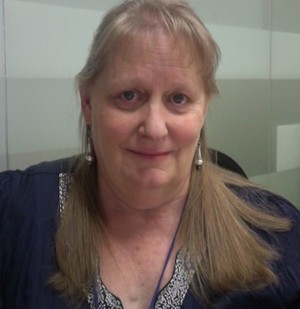 |
|
| cell | cell |
 |
Professor Maggie-Lee Huckabee PhD Swallowing Rehabilitation Research Lab, The University of Canterbury; Rose Centre for Stroke Recovery and Research, St George’s Medical Centre, Christchurch, NZ |
Maggie-Lee Huckabee, PhD practiced as a clinician for 15 years before the frustration of never knowing ‘the answers’ led her to an academic career. She is now Professor in the Department of Communication Disorders, University of Canterbury and Director of the newly established Rose Centre for Stroke Recovery and Research. Her research focuses on behaviourally-driven neural adaptation and biomechanical change leading to swallowing recovery following stroke with a particular interest in biomedical engineering applications to rehabilitation. Her research on reducing pneumonia in stroke patients was recently recognised with receipt of the 2014 University of Canterbury Innovation Medal. Maggie-Lee has co-authored two textbooks on swallowing disorders following neurological impairment, 10 book chapters on topics related to rehabilitation and 64 peer-reviewed scientific articles related to various dimensions of dysphagia. Emerging New Health Technologies at the University of Canterbury Although not historically recognized for health research, the University of Canterbury is a ‘quiet high achiever’ in development of health technologies. With a world-class College of Engineering supporting researchers from the New Zealand Institute of Language, Brain and Behaviour , intelliHealth Systems Research Lab and the Rose Centre for Stroke Recovery and Research, the University is rapidly increasing its investment in translational bioengineering applications for both diagnostic and rehabilitation medicine. This talk will highlight developments in rehabilitation across the domains of audiology, communication sciences and disorders and cognitive neuroscience. Particular focus will be on new developments generated by research staff at the Rose Centre, a new centre for research and specialist clinical service delivery for patients following neurological injury. With a specialized interest in rehabilitation of swallowing impairment (dysphagia) staff, students and patients are developing a platform of technologies designed to overcome the challenges of capturing the complexities of this pseudo-reflexive behaviour. The informal PERC Programme (Patients, Engineers, Researchers and Clinicians) is designed to include patients in the research and development process and will soon be formalised to support future developments. | |